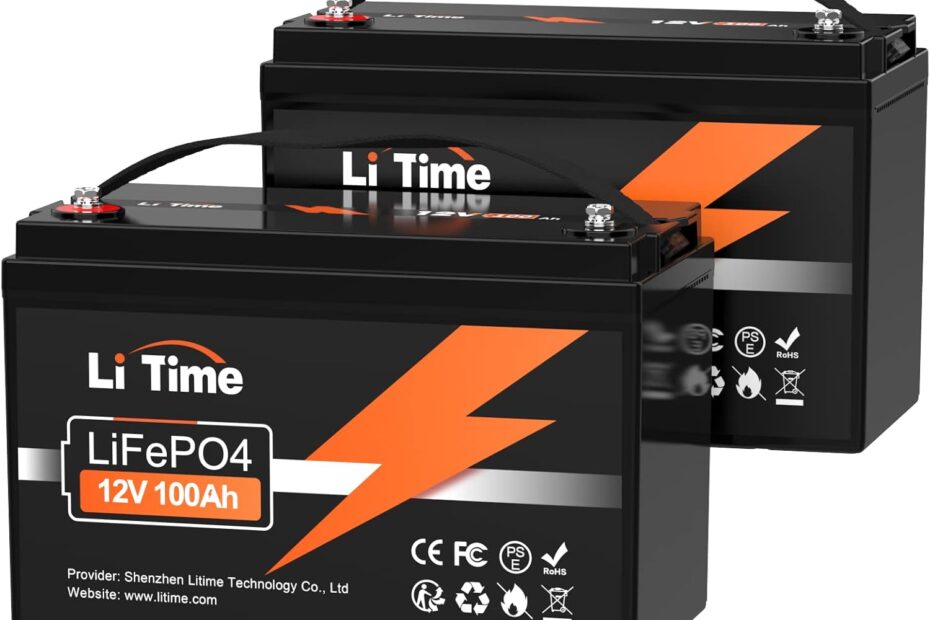Are you thinking about changing your Lead-acid RV battery to a Lithium battery? Why is it a better battery option for your RV than the current one? Would it be worth your money? How long do lithium RV batteries last. This needs a long discussion if you want to understand the complete thing.
In short, it will last about three to five thousand cycles on average, depending on a few factors. They may include- the battery cycle, maintenance, effective use, etc.
Many people think that Lithium batteries outlast AGM and lead acids. Do they do that? Are they capable of running that long? Here is our discussion on this topic to answer all your questions.
How Long Do Lithium RV Batteries Last?
RV batteries are popular among Caravan and RV owners. They tend to last longer than SLA batteries.
How does the battery cycle count?
A battery cycle consists of bringing the battery to full charge, then discharging it completely, and then again recharging it to full.
Now, the life of a lithium battery depends on the charging and discharging cycle it’s about to face during its lifetime. Typically, a lithium battery lasts for 3000 to 5000 battery cycles, whereas a Lead-Acid battery may last for 300 to 400 cycles.
How Can I Make the Lithium RV Batteries Last Longer?
These expensive Lithium batteries are rated generally for 3000 to 5000 cycles. But that also depends on some factors.
- They are charged as soon as they get empty.
- They are kept on a trickle charger to keep the battery charging slowly and prevent it from deep discharge damage.
- Applying *periodic equalizing charge
- Remove the battery when stored for a longer time or during winter storage.
- Avoid storing in a freezing temp as batteries freeze faster when kept discharged.
- Give them a full charge before storing.
- Store in a cool and dry place.
**An equalization charge is a calculated overcharge to remove sulfate crystal build-ups from the plates.
Positives of RV Lithium Batteries
- When maintained properly, they last far longer than the SLA batteries, even up to 30 years.
- Weigh lighter.
- Contain more power.
- It can be recharged numerous times.
- Requires the least maintenance.
- Faster and more efficient charging.
- They can discharge deeply.
- Have a low self-discharge rate, 2% to 4% per month.
- A better value than SLA when the lifespan is considered.
- They come with a BMS or Battery Management System that helps to regulate the charging and discharging factors.
Downsides of RV Lithium Batteries
Everything has a downside. Here are 3 disadvantages one may face while using an RV Lithium battery-
- It can’t regulate in freezing temperatures. Charging in a below-freezing temperature can lead them to damage. However, some companies have heaters to heat the battery before charging to regulate cold temperatures.
- As they are fragile, they require protection circuits to operate safely.
- Reactive Lithium can react when it comes in contact with liquid. The dried electrolyte may cause a hazard if the metal plates collide.
How Long Do Lithium RV Batteries Last – FAQs
What is a Lithium Battery?
Lithium batteries have a higher energy density than others, up to 150 watt-hours/kg. They are powerful alternatives to Deep Cycle and SLA batteries. Inside the Lithium batteries, there are no corrosion-prone materials. Hence, they can safely discharge deep down to 2%, a 98% DoD.
Why Choose an RV Lithium Battery Over an SLA Battery?
Most car and RV owners still prefer deep cycle SLA batteries for their low price, inexpensive elements, and reliable performance when used effectively. Lithium batteries can preserve up to 90% of their charge when kept without a trickle charger for over a year. Though the SLA batteries have a lower price compared to RV Lithium batteries, some positive aspects make the Lithium-Ion battery win over it despite being so expensive.
How Fast Will My Lithium Battery Recharge?
It varies upon individual batteries depending on a battery’s total Ampere Hour (AH) rate and the current discharging rate. Say, a 100 Ah Lithium Battery connected to a 50 Amp charger will take 2 hours to recharge. That is, 100 AH divided by 50 AH equals 2 hours. And the fuller the battery gets, the more time it will take to fill 1% of the cell. Additionally, near the completion of charging, the charge current is reduced gradually. So, the complete charging time may vary, but again, it would be more or less 2 hours.
Under a similar situation, a Lead-Acid battery would take more or less 5 to 7 hours to recharge completely.
What Can Kill RV Lithium Batteries?
Though Lithium RV batteries are popular for a long lifetime, some storage mistakes can lead your batteries to death, reducing their lasting period.
- Storing in a partially or completely discharged state.
- Storing in a freezing temp.
What is DoD?
Depth of discharge or DoD is the percentage of energy drained from a fully charged battery. It is shown in percentage or AH. So, it’s 100%, or in a 60 Ah battery, at 60 Ah, the battery is empty. Contrarily, at 0% or 0 Ah, the battery is full. This is an alternation of the battery’s State of Charge or SoC. So, when one increases, the other decreases.
Now, how is it related to the Battery life cycle? In battery technology, there is a correlation between the cycle of the battery and the DoD. It is calculated by dividing the energy discharged from the battery by its nominal capacity and expressed in percentage.
How Long Do Lithium RV Batteries Last – Conclusion
We hope this article has helped you find the answer to How Long Do Lithium RV Batteries Last? Don’t forget to share with your RV camper friends! To find the best lithium battery, consider these options from Weize, Battle Born, or Li Time.
